Consider Business Issues Before Opening A Brewery
In the world of craft beer, where creativity flows as freely as the brews themselves, the dream of opening a brewery captivates the minds of many passionate individuals. The allure of crafting unique flavors, building a community of beer enthusiasts, and leaving an indelible mark on the thriving craft beer landscape is undeniably exciting.
However, beneath the frothy surface of this dream lies a complex tapestry of business considerations that aspiring brewery owners must navigate.
From market analysis and legal compliance to equipment procurement and branding, the path to brewery ownership is paved with challenges and opportunities alike.
In this comprehensive guide, we will explore the essential business issues that aspiring brewery owners need to consider before embarking on their entrepreneurial journey.
By delving into these critical aspects, individuals can equip themselves with the knowledge and insights necessary to set their brewery on a path to success in an increasingly competitive and dynamic industry.
Complete Guide
1.Market analysis and research
2.Business planning and strategy
3.Legal and Regulatory Compliance
4.Location and Facility Planning
5.Equipment and Production
6.Get A Turnkey Brewery Solution
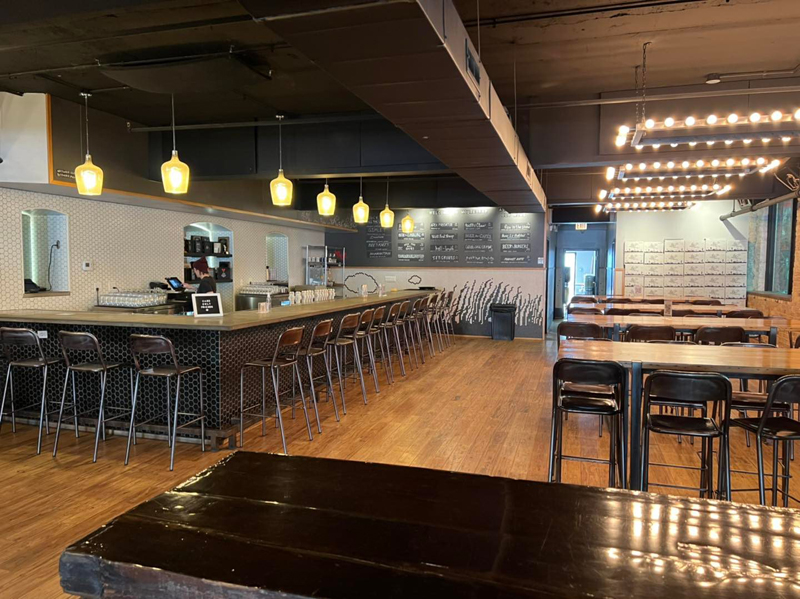
Market Analysis And Research
Building a successful brewery business starts with a deep understanding of the market landscape, where understanding consumer preferences, industry trends, and competitive dynamics is critical. Before fermenting your first batch of beer, conducting thorough market analysis and research lays the foundation for informed decision-making and strategic planning.
Demographics And Consumer Preferences
Start by dissecting the demographics of your target market. Explore factors like age, income level, education, and lifestyle preferences to gain insights into your potential customer base.
Are there clear patterns in consumer behavior that indicate demand for craft beer in your area? Understanding the demographics of your market will guide product development, pricing strategies, and marketing efforts.
Industry Trends And Market Dynamics
Keep your finger on the pulse of the craft beer industry, identify emerging trends, and anticipate changes in consumer preferences. Are there new beer styles growing in popularity?
Is there an innovative brewing technique that has captured the attention of beer lovers? Analyzing industry trends can keep you ahead of the curve and make your brewery stand out in a crowded market.
Competition Analysis
Thoroughly assess the competitive landscape by researching existing breweries in your area. Evaluate their products, brand strategy, distribution channels, and customer engagement strategies.
What makes each brewery unique? Where are the gaps or opportunities for differentiation? Understanding your competitors’ strengths and weaknesses allows you to carve out a unique position in the market and capitalize on untapped niches.
Market Segmentation And Targeting
Segment your target market based on demographics, psychographics, and behavioral characteristics to effectively tailor your products and marketing strategies.
Is there a specific consumer segment that aligns with your brewery’s vision and products? By digging into your niche and catering to specific preferences, you can create deeper connections with your customers and build a loyal following.
Demand Forecasting And Sales Forecasting
Leverage market research data and industry insights to forecast craft beer demand in your area and predict potential sales. When estimating market demand, consider seasonality, economic conditions, and competitive pressures.
Developing realistic sales forecasts allows you to set achievable goals and allocate resources effectively.
Market analysis and research are like a compass guiding your brewery through the rough seas of the craft beer industry.
By delving into the nuances of consumer behavior, industry trends, and competitive dynamics, aspiring brewery owners can chart a path to success with confidence and clarity.
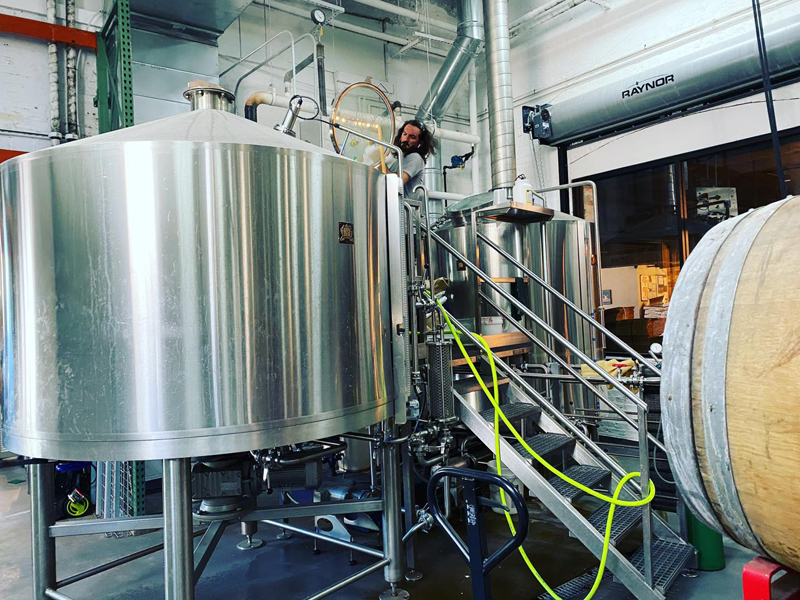
Business Planning And Strategy
Behind every successful brewery is a well-crafted business plan, a roadmap that guides the brewery through the ebbs and flows of the industry, ensuring that every pour leads to prosperity.Business planning and strategy are the solid pillars upon which a brewery lays its foundation, including vision, goals, market positioning, financial projections, and operating framework.
Define A Brewery’s Identity
At the heart of every brewery is its identity—a unique blend of vision, mission, and values that make it stand out in the crowded craft beer space.
Clearly and firmly define your brewery’s identity. What sparked your passion for winemaking? What values do you want to be reflected in every pint you pour?
Your brewery's identity should resonate with your target audience, creating a connection that goes beyond the liquid in the glass.
Focus On Success
Develop a roadmap to success with clear and measurable goals. Define your brewery's goals, whether it's capturing a certain market share, achieving revenue milestones, or becoming a community hub for beer lovers.
Make sure your goals are smart, specific, measurable, achievable, relevant, and time-bound. Setting high standards while keeping goals achievable is the secret to continued growth and achievement.
Navigate The Market Landscape
The brewery’s success depends on its ability to navigate a complex market landscape with skill and agility. Develop a comprehensive marketing plan including branding, promotions, and customer engagement strategies.
Identify your target market segments and tailor your marketing efforts to resonate with their preferences and desires. From social media campaigns to community events, leverage every touchpoint to build brand loyalty and awareness.
Crunch Numbers
Behind the art of brewing is financial science. Develop a detailed financial plan that includes start-up costs, operating expenses, revenue projections, and cash flow management.
Conduct thorough research to estimate your start-up expenses, including equipment purchases, facility lease or purchase costs, permits and licenses, and marketing campaigns.
Consider ongoing operating expenses such as utilities, raw materials, staffing, and maintenance.
Reduce Risk
In an unpredictable business environment, risks lurk around every corner. Identify potential risks and develop effective risk mitigation strategies.
Whether it's a supply chain disruption, regulatory compliance issues, or an economic downturn, proactive risk management ensures your brewery is prepared to weather any storm.
Develop contingency plans and buffers to protect against unforeseen challenges so your brewery remains resilient and adaptable in the face of adversity.
Adapt And Innovate
In the dynamic world of craft beer, adaptability is the key to longevity. Pay attention to industry trends, consumer preferences, and technological advancements, and continuously innovate to stay ahead of the curve.
Embrace experimentation and creativity, fostering a culture of innovation that permeates every aspect of the brewery—from brewing technology to marketing strategy.
By embracing change and growth, your brewery can carve out a niche in the competitive craft beer space.
In the exhilarating journey of brewery entrepreneurship, business planning and strategy are the guiding stars that illuminate the path to success.
By defining your brewery's identity, setting ambitious yet attainable goals, navigating the market terrain with finesse, crunching the numbers with precision,
mitigating risks effectively, and embracing adaptation and innovation, you can craft a blueprint for brewery success that stands the test of time.
Legal And Regulatory Compliance
Embarking on the journey of opening a brewery requires more than a mastery of malt and hops, it demands a keen understanding of the intricate legal and regulatory landscape governing the world of craft beer. Aspiring brewers must set sail with diligence, ensuring their vessel is equipped to navigate the complexities of federal, state, and local regulations, lest they find themselves shipwrecked in a sea of legal troubles.
Licensing And Permits
Securing the proper licenses and permits is the first port of call for any brewery. On a federal level, obtaining a Brewer’s Notice from the Alcohol and Tobacco Tax and Trade Bureau (TTB) is imperative.
Simultaneously, brewers must navigate the requirements of state and local authorities, obtaining permits for manufacturing, distribution, and sales. Legal experts well-versed in alcohol beverage law can be valuable allies in navigating this bureaucratic maze.
Health And Safety Compliance
Creating a safe and hygienic brewing environment is not just good business; it's a legal obligation.
Breweries must adhere to health and safety regulations, ensuring that their facilities meet sanitation standards, hygiene practices are impeccable, and employees are trained in safe handling procedures.
Regular inspections and following health and safety guidelines can help avoid legal pitfalls.
Taxation Considerations
The taxman casts a long shadow over the brewery business. Understanding the intricacies of excise taxes on beer, sales taxes, and payroll taxes is essential.
Tax professionals specializing in the alcohol beverage industry can help breweries navigate the nuances of taxation, ensuring compliance and identifying opportunities for tax incentives and deductions.
Distribution Laws
The distribution landscape varies from state to state, with some regions tightly regulating relationships between breweries, wholesalers, and retailers.
Familiarize yourself with your state’s distribution laws, as they can significantly impact your brewery’s ability to sell and distribute beer. Some states enforce strict franchise laws, while others offer more flexibility.
Understanding these laws can influence your business model and growth strategy.
Labeling And Packaging Compliance
The art of presenting your beer to the world comes with its own set of rules. Labeling and packaging compliance involves meeting specific requirements for content, format, and placement of information on beer labels.
Failure to comply can result in fines and recalls. Engage legal professionals with expertise in alcohol labeling to ensure your packaging not only stands out on the shelves but also meets regulatory standards.
Environmental Regulations
Breweries, like any manufacturing facility, must navigate environmental regulations. Proper waste disposal, water usage, and energy efficiency are not just ethical considerations but legal obligations.
Staying in harmony with environmental regulations not only avoids legal troubles but also contributes to a positive brand image among environmentally conscious consumers.
Legal Consultation
In the world of brewery ownership, legal consultation is not a luxury; it’s a necessity. Building a relationship with legal professionals who specialize in alcohol beverage law can safeguard your brewery against legal pitfalls.
Whether interpreting complex regulations, assisting in licensing procedures, or representing your interests in legal matters, legal experts are your allies in ensuring compliance with the ever-evolving legal landscape.
As you set sail on the seas of brewery ownership, navigating the legal and regulatory currents is as crucial as perfecting the art of brewing itself.
A well-informed and legally compliant brewery not only avoids the stormy waters of legal troubles but also lays the foundation for a smooth and prosperous voyage in the craft beer industry.
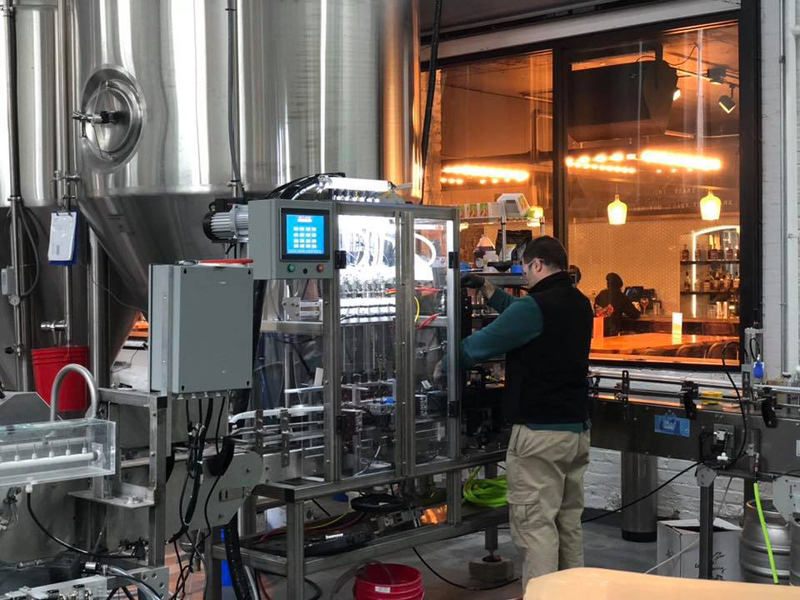
Location And Facility Planning
In the world of brewery ownership, the significance of location and facility planning cannot be overstated. Like the perfect blend of malt and hops in a finely crafted beer, the right location and facility are essential ingredients for the success of any brewery venture.
Aspiring brewers must carefully consider a myriad of factors, from accessibility and infrastructure to zoning regulations and space requirements, to ensure their brewery has a solid foundation to flourish.
Accessibility And Visibility
The location of your brewery can make or break its success. Choose a location with high visibility and easy accessibility to attract foot traffic and drive-by customers.
Consider proximity to main roads, public transportation, and popular attractions or neighborhoods. A location with ample parking and outdoor seating options can enhance the customer experience and encourage repeat visits.
Zoning And Regulations
Navigating zoning regulations and local ordinances is a crucial aspect of location planning.
Ensure that your chosen location is zoned for brewery operations and complies with all applicable regulations regarding land use, building codes, noise ordinances, and environmental permits.
Engage with local authorities and zoning officials early in the planning process to avoid potential delays or complications.
Space Requirements
Assess your brewery's space requirements based on your production capacity, equipment needs, and future growth projections.
Calculate the square footage needed for brewing, fermentation, packaging, storage, and taproom operations. Consider factors such as ceiling height, floor load capacity, utility access, and layout flexibility when evaluating potential facilities.
A well-designed brewery layout optimizes workflow efficiency and maximizes productivity.
Infrastructure And Utilities
Evaluate the infrastructure and utilities available at potential locations to ensure they meet your brewery's needs. Adequate electrical capacity, water supply, wastewater disposal, and HVAC systems are essential for brewery operations.
Conduct thorough inspections of plumbing, electrical, and HVAC systems to identify any potential issues or upgrades required. Consider the cost and feasibility of making necessary infrastructure improvements when budgeting for facility expenses.
Community And Market Analysis
Consider the demographics and market dynamics of the surrounding community when choosing a location for your brewery.
Research consumer preferences, competition, and local beer culture to gauge demand and identify opportunities for differentiation.
Engage with the community through market research, focus groups, and outreach efforts to understand their needs and preferences.
Building strong ties with the local community can help drive business and create a loyal customer base.
Aesthetics And Brand Identity
The aesthetic appeal of your brewery plays a significant role in shaping your brand identity and customer perception.
Choose a facility that aligns with your brewery’s branding and reflects its personality and values.
Consider factors such as architectural style, interior design, signage, and landscaping to create a memorable and inviting atmosphere for customers.
Invest in branding elements that showcase your brewery’s unique identity and differentiate it from competitors.
Flexibility And Growth Potential
Anticipate future growth and expansion when selecting a brewery location and facility.
Choose a facility with the flexibility to accommodate increased production capacity, taproom expansions, and additional amenities as your brewery grows.
Consider leasing options that offer room for expansion or renewal terms that allow for flexibility in adapting to changing business needs.
A strategic approach to facility planning ensures your brewery is poised for long-term success and scalability.
In the journey of brewery ownership, the location and facility serve as the stage upon which your brewing dreams unfold.
By carefully considering factors such as accessibility, zoning, space requirements, infrastructure, community dynamics, aesthetics, and growth potential, aspiring brewers can lay the groundwork for a successful and thriving brewery venture.
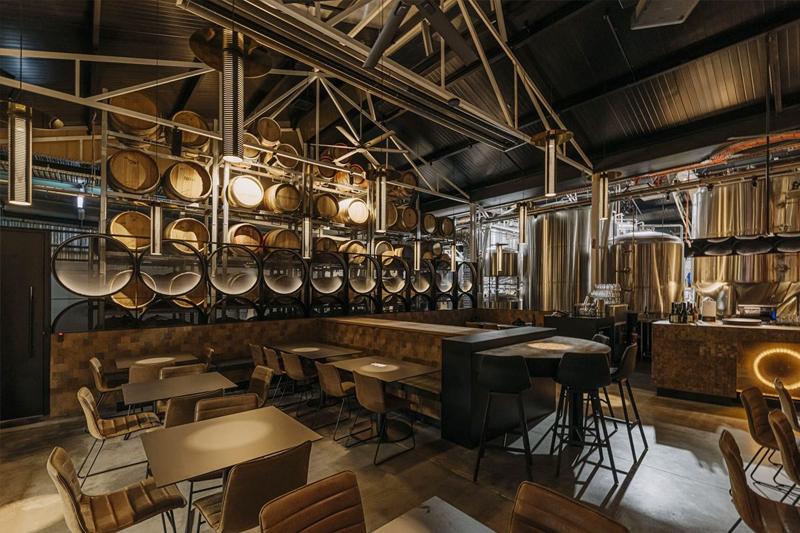
Equipment And Production
In the alchemy of brewing, where malt meets hops and yeast works its magic, the choice of equipment and the efficiency of production processes play a pivotal role in crafting exceptional beer. From the mash tun to the fermenters, every piece of equipment is a cog in the intricate machinery of brewing, ensuring consistency, quality, and scalability.
Investing In Quality Equipment
At the heart of any brewery lies its brewing equipment, the backbone of the operation.
Investing in quality equipment that aligns with your production needs and quality standards is paramount.
Research different types of brewing equipment, considering factors such as batch size, brewing capacity, automation, and energy efficiency.
Whether starting small with a pilot system or aiming big with a production brewery, prioritize equipment that balances functionality, durability, and affordability.
Essential Brewing Equipment
&Mash Tun: This vessel is where malted barley meets hot water, converting starches into fermentable sugars.
&Brew Kettle: The brew kettle is where the wort is boiled, hops are added, and flavors are infused.
&fermentation tanks: These vessels are where the magic happens, as yeast transforms wort into beer during fermentation.
&Bright Tanks: Essential for conditioning and carbonating beer before packaging.
&Heat Exchanger: Rapidly cools the wort post-boil to prevent off-flavors.
&Packaging Equipment: From bottling lines to canning machines, these ensure your beer is packaged and ready for distribution.
Layout And Workflow Optimization
Efficient production begins with thoughtful layout and workflow optimization. Arrange equipment in a logical sequence that minimizes unnecessary movement and streamlines production.
Allocate space for brewing, fermentation, packaging, and storage, ensuring proper ventilation and drainage for a clean and safe working environment.
Employee training ensures your team operates equipment safely and efficiently, maintaining consistency and quality in every brew.
Quality Control Protocols
Maintaining consistent quality is the hallmark of a successful brewery. Implement robust quality control protocols to monitor beer quality throughout the brewing process, from raw ingredients to finished products.
Regular sensory evaluations, laboratory tests, and quality checks ensure your beer meets the highest standards and exceeds customer expectations.
Investing in staff training on quality control procedures empowers your team to uphold the brewery's commitment to excellence.
Production Efficiency And Scaling Up
As your brewery grows, production efficiency becomes paramount. Invest in scalable equipment and processes that accommodate increased demand while maintaining quality and consistency.
Anticipate future growth and plan for equipment upgrades or expansions accordingly. Tracking key performance indicators such as production efficiency, yield, and inventory turnover helps identify areas for improvement and optimize production processes.
Ancillary Equipment And Supplies
In addition to brewing equipment, ancillary equipment and supplies are essential for brewery operations.
Pumps, hoses, valves, tanks, filters, and cleaning and sanitation chemicals are indispensable tools in the brewer's arsenal.
Consider the total cost of ownership, including installation, shipping, taxes, and ongoing maintenance, when budgeting for equipment purchases and supplies.
In the symphony of brewing, equipment and production processes harmonize to create the perfect pint.
By investing in quality equipment, optimizing production workflows, implementing rigorous quality control measures, and planning for scalability, brewery owners lay the groundwork for success.
Get A Turnkey Brewery Solution
With Alston Brew, aspiring brew masters can harness a holistic approach to brewery establishment. From customized brewhouse design and equipment selection to installation, training, and ongoing support, Alston Brew transforms brewery dreams into reality.
Leveraging expertise, cutting-edge technology, and a commitment to quality, Alston Brew ensures that every facet of your brewery aligns seamlessly.
By opting for Alston Brew's turnkey solutions, you not only access state-of-the-art brewing equipment but also benefit from a wealth of industry knowledge and support.
Elevate your brewing journey with Alston Brew and set the stage for a flourishing brewery that stands out in a competitive market.
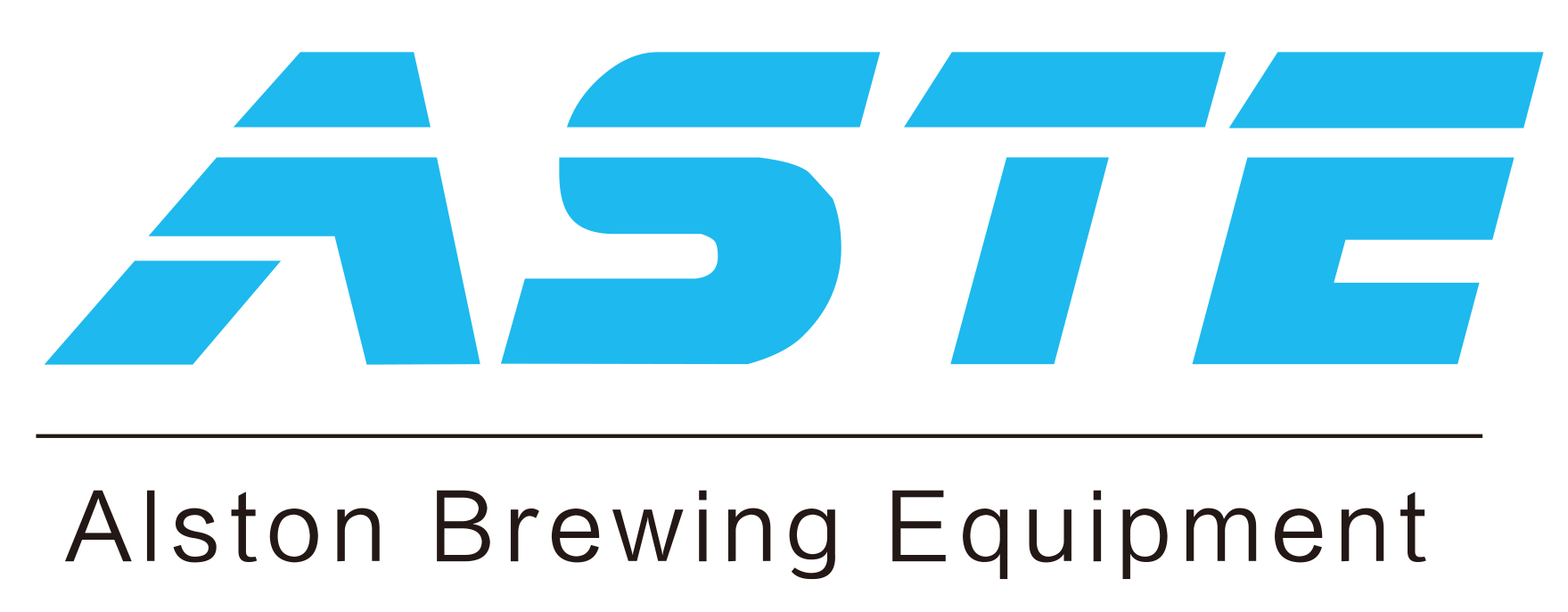 Jinan Alston Equipment Co.,Ltd.
Jinan Alston Equipment Co.,Ltd.